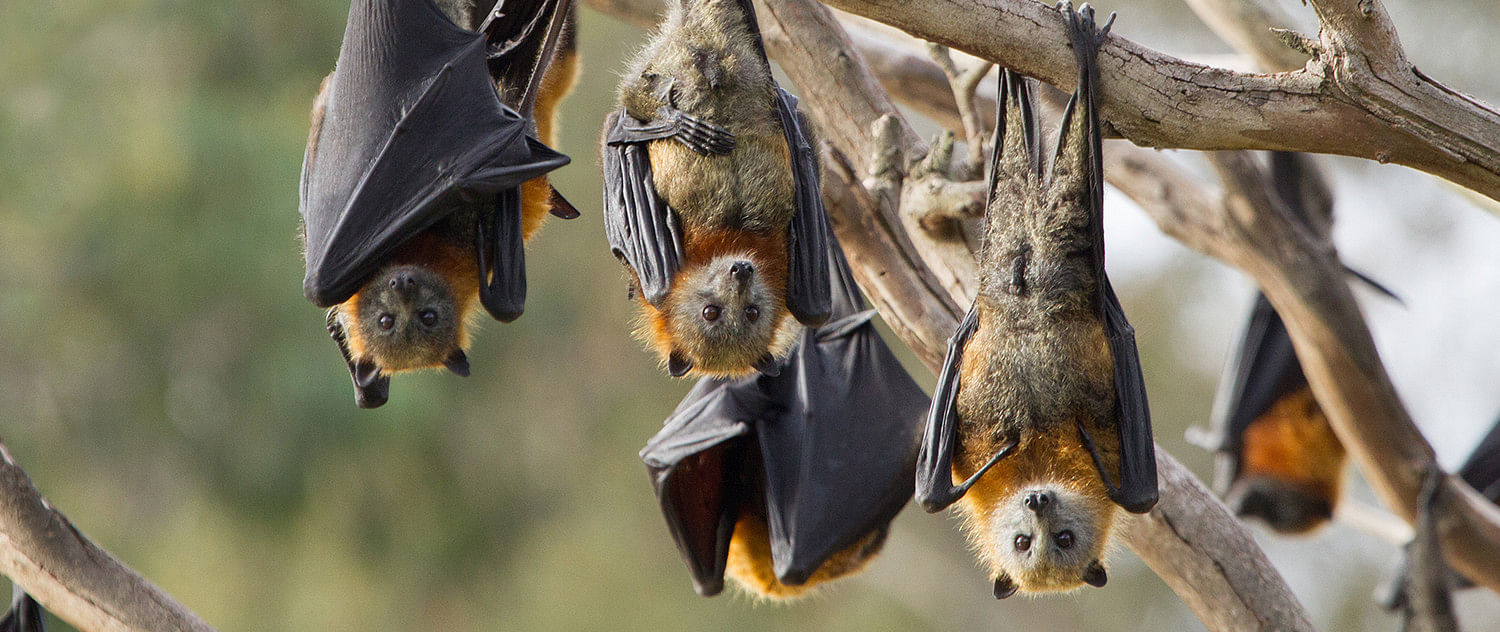
Doctors advise precautions, while restaurants are jittery about how the virus scare will hit business.
The outbreak of Nipah in Kerala is sending out shock waves, with its impact being felt in Bengaluru. Restaurateurs serving pork, and owners of ham shops are afraid the scare will impact business.
Officially, Karnataka is still not in the danger zone. Dr Mahesh Kumar, consultant, internal Medicine, Narayana Health City, says, “In Mangaluru, two suspicious cases have come to light, but they have not been confirmed.”
Most cases testing positive are concentrated in the Kozhikode and Malappuram region of Kerala.
Karnataka needs to be careful because of its floating population. “There is a lot of communication and we don’t know how many people are exposed to this virus. The infection commonly peaks between March and June,” Dr Kumar explains.
The Nipah virus is spread in three ways, doctors say.
1) When infected bats feed on fruits like jackfruit and mango, they contaminate the fruit with their saliva, urine, and faeces. People become easy prey when they consume such fruits.
2) If pigs come in contact with infected bats, they can in turn get infected and further infect humans.
3) Direct contact with an infected person through saliva, urine or navel secretion.
What if people are travelling from Bengaluru to Kerala?
As person-to-person transmission can occur, so be cautious when you come in contact with infected persons. Avoid eating fruits fallen on the ground and drinking raw date palm sap in Kerala. Avoid contact with sick domestic animals and pigs.
What are the symptoms?
It can be asymptomatic or trigger acute respiratory syndrome (cough, breathlessness and respiratory distress) and fatal encephalitis (inflammation in the brain).
After exposure to virus, symptoms start within five to 14 days. The usual symptoms are fever and headache for three to 10 days followed by drowsiness, confusion, seizures and altered sensorium.
Signs and symptoms can progress rapidly to coma and death in 24-48 hours. Nipah virus encephalitis is fatal with a high mortality rate.
What are the precautions to be taken?
People in affected places should avoid eating or drinking date palm sap (raw date palm sap, a sweet drink popular in the winter, when the sap is easy to tap from trees pierced with a spigot. A bat clings to a palm tree as it eats sap just above a collection jar).
What is the treatment?
Currently, no drug treatment has been proven to be effective. Health care providers offer supportive therapy (i.e., rest, fluid intake) to help manage symptoms. Early treatment with the antiviral drug, ribavirin, can reduce the duration of the fever and the severity of the disease. However, whether this treatment cures the disease or improves survival is still uncertain.
What restaurateurs say
The Smoke Co in Koramangala specialises in smoked meats.
Gautam Krishnankutty, owner, says, “Most messages spread about the Nipah virus, especially about pig meat, are taken out of context. The virus is mostly transmitted through bats biting into fruits but it could also happen at a pig farm. However, if you cook the pork to a certain temperature, there is nothing to worry about.”
He expects the sale of pork dishes to go down for the next couple of weeks because of the scare. “We are confident about the meat provided by our vendor. He killed all pigs and started the business all over again when there was a pig flu scare sometime last year,” he says. It is likely dessert sales will go down because of the scare, he says.
At the ham shops...
Bangalore Ham Shop, MG Road
Owner Sudhakar Shetty says, “We don’t know anything about the virus. Rumours keep spreading and we can’t pay heed to all of them.”
New Bangalore Pork Shop, Yeshwantpur
“The pigs from our farm are not affected by the Nipah virus,” says owner Madhesh.
Karnataka Ham Shop, Yeshwantpur
“The farms have to ensure that they are clean and maintained well. Spreading wrong information about will definitely affect the business,” says Srinivas, who runs the shop.
A million pigs culled
In the late 90s, when Nipah was first detected in Malaysia, one million pigs were killed.